Indoor plants have surged in popularity as more people recognize their ability to enhance living spaces aesthetically and contribute to overall well-being. These plants not only add a touch of nature to the indoors but also come with an array of health benefits. From purifying the air to reducing stress levels, the impact of these green companions is significant. This blog post explores several indoor plants that offer health benefits, providing readers with insights into how each plant can contribute to a healthier, more vibrant home environment.
Contents
Spider Plant

The Spider Plant, known for its arching leaves and small white flowers, is a popular choice for indoor spaces. Its adaptability to various lighting conditions and minimal care requirements make it a favorite among both gardening novices and enthusiasts. The plant thrives in indirect sunlight and requires moderate watering, making it an excellent addition to living rooms or offices.
Spider Plants are renowned for their air-purifying abilities. Research indicates that they are particularly effective at removing formaldehyde and other harmful toxins from indoor air. These qualities not only improve air quality but also contribute to a healthier living environment. Their non-toxic nature also makes them safe for homes with pets, ensuring that their presence is beneficial for all inhabitants.
Aloe Vera
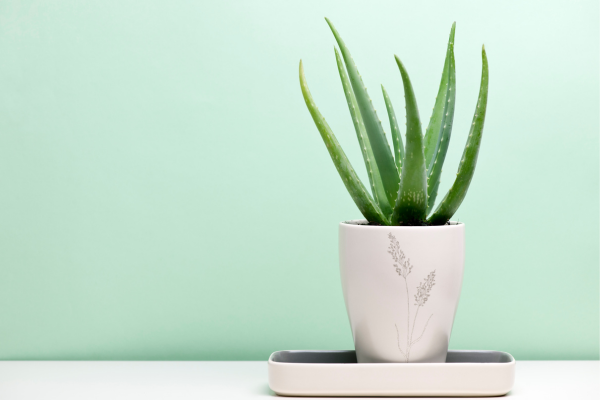
Aloe Vera stands out as a versatile and hardy succulent. Its thick, fleshy leaves store water, allowing it to withstand periods of neglect, making it ideal for busy or forgetful plant owners. This plant requires bright, indirect sunlight and infrequent watering, thriving in well-drained soil. Aloe Vera’s architectural shape and soothing green color make it a stylish addition to any interior space.
Beyond its aesthetic value, Aloe Vera is celebrated for its health benefits. The gel inside its leaves is rich in vitamins, minerals, and antioxidants, widely used for skin and hair care. It offers a natural remedy for burns, cuts, and dry skin. Additionally, Aloe Vera is known for its air-purifying properties, helping to remove common household chemicals from the air, thus contributing to a healthier indoor environment.
Lavender

Lavender, celebrated for its enchanting fragrance and beautiful purple blooms, is a superb choice for indoor cultivation. This plant requires full sun and well-drained soil, flourishing in bright, warm environments. Its presence in a room not only adds a splash of color but also a calming, pleasant aroma. Lavender’s ability to thrive indoors makes it a wonderful addition to bedrooms or areas dedicated to relaxation.
The health benefits of Lavender are particularly notable for their stress-relieving properties. Studies have shown that its scent can lower heart rate and blood pressure, promoting relaxation and improved sleep quality. This makes Lavender an excellent plant for bedrooms or any space where relaxation is a priority. Its potential anti-anxiety effects further enhance its appeal, making it a natural and effective way to create a tranquil indoor environment.
English Ivy
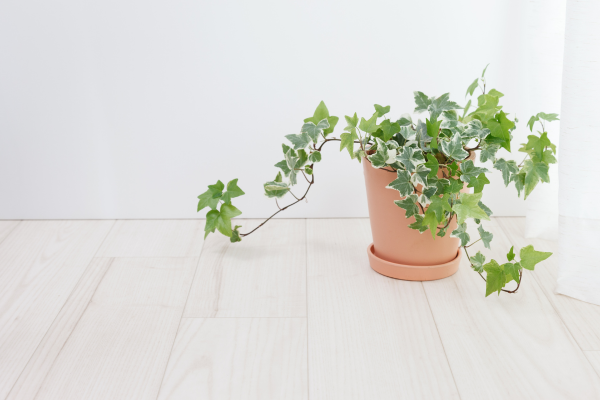
English Ivy is a classic choice for indoor spaces, known for its lush, trailing vines and adaptability to indoor environments. It thrives in moderate temperatures and medium sunlight, making it suitable for a variety of indoor settings. Its ability to climb and spread can add a unique aesthetic to walls or shelves, bringing a touch of nature’s elegance indoors.
One of the most significant advantages of English Ivy is its ability to purify the air. It is particularly adept at reducing airborne mold and fecal-matter particles, making it an excellent choice for bathrooms or areas prone to dampness. This plant’s air-cleansing abilities extend to reducing airborne pollutants like benzene, formaldehyde, and trichloroethylene, contributing to a healthier indoor atmosphere.
Snake Plant
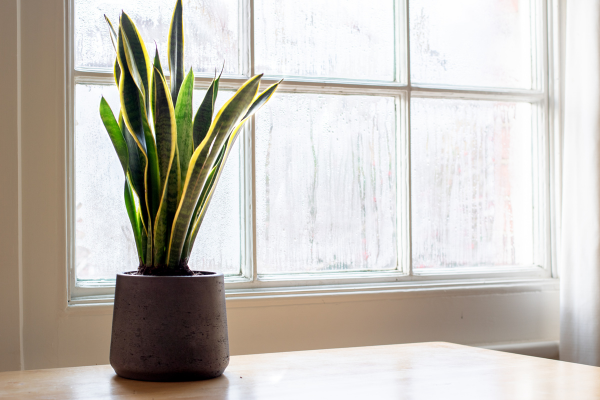
The Snake Plant, with its striking vertical leaves and patterned appearance, is a resilient and attractive indoor plant. It thrives in low light conditions and requires minimal water, making it an ideal choice for less sunny spaces or for those who prefer low-maintenance plants. The architectural quality of its leaves adds a modern touch to interiors, complementing a variety of decor styles.
Unique among indoor plants, the Snake Plant is known for its ability to convert carbon dioxide into oxygen during the night. This feature makes it particularly beneficial for bedrooms, as it can improve air quality while residents sleep. Furthermore, it is effective at removing toxins such as formaldehyde and xylene from indoor air, making it not only a visually appealing choice but also one that promotes a healthier living environment.
Rosemary
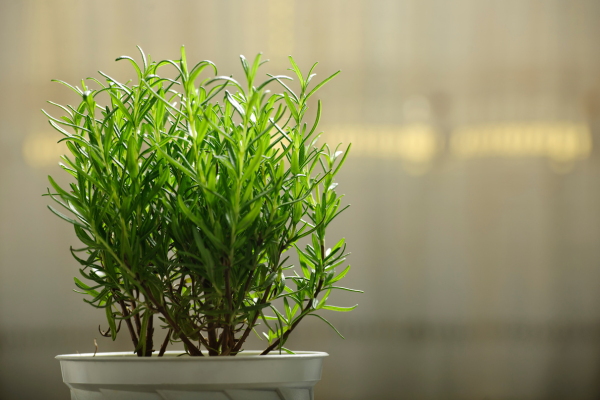
Rosemary is a fragrant herb that doubles as a delightful indoor plant. It thrives in well-lit areas and requires well-drained soil, making it suitable for sunny windowsills or balconies. The herb’s needle-like leaves and woody scent make it a pleasant addition to any room, while its culinary uses offer an added benefit.
Beyond its use in cooking, Rosemary is appreciated for its potential cognitive benefits. Research suggests that the aroma of Rosemary can enhance memory and concentration. Additionally, it may have mood-enhancing properties, making it a valuable plant for both mental and physical well-being. Its easy maintenance and health benefits make Rosemary an excellent choice for those seeking both functional and ornamental plants.
Boston Fern
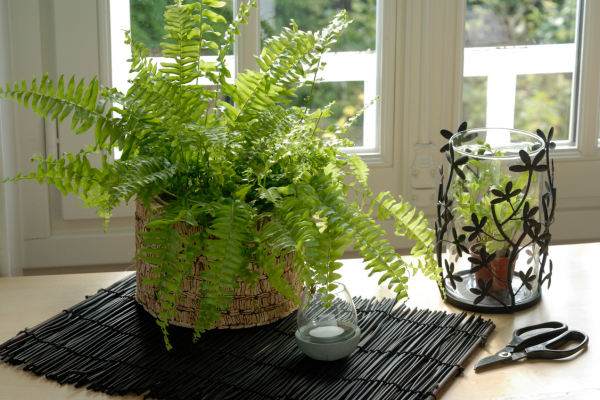
The Boston Fern is known for its lush, feathery fronds and ability to act as a natural humidifier. This plant prefers high humidity and indirect light, thriving in moist, shaded areas. Its verdant fronds can add a vibrant touch of greenery to any space, especially in hanging baskets or on high shelves.
Boston Ferns are particularly effective at removing pollutants from indoor air. They excel at filtering out formaldehyde, xylene, and toluene, common in household products and furnishings. This capability makes them not only a visually appealing addition to homes but also a beneficial one for improving indoor air quality and creating a healthier living environment.
The Bottom Line
Incorporating indoor plants into living spaces offers numerous health benefits, from purifying the air to enhancing mental well-being. Each plant discussed in this post brings its unique advantages, whether it be the air-cleaning prowess of the Spider Plant or the stress-relieving fragrance of Lavender. By choosing the right plants, individuals can create not just a more aesthetically pleasing environment but also one that fosters health and well-being. With options suitable for a variety of care preferences and environmental conditions, there is a health-boosting plant for every home.


